‘Time and the Rani’ was the Seventh Doctor’s debut story, and opened Doctor Who‘s 24th season in 1987. But the version that was transmitted was radically different from the one that was planned.
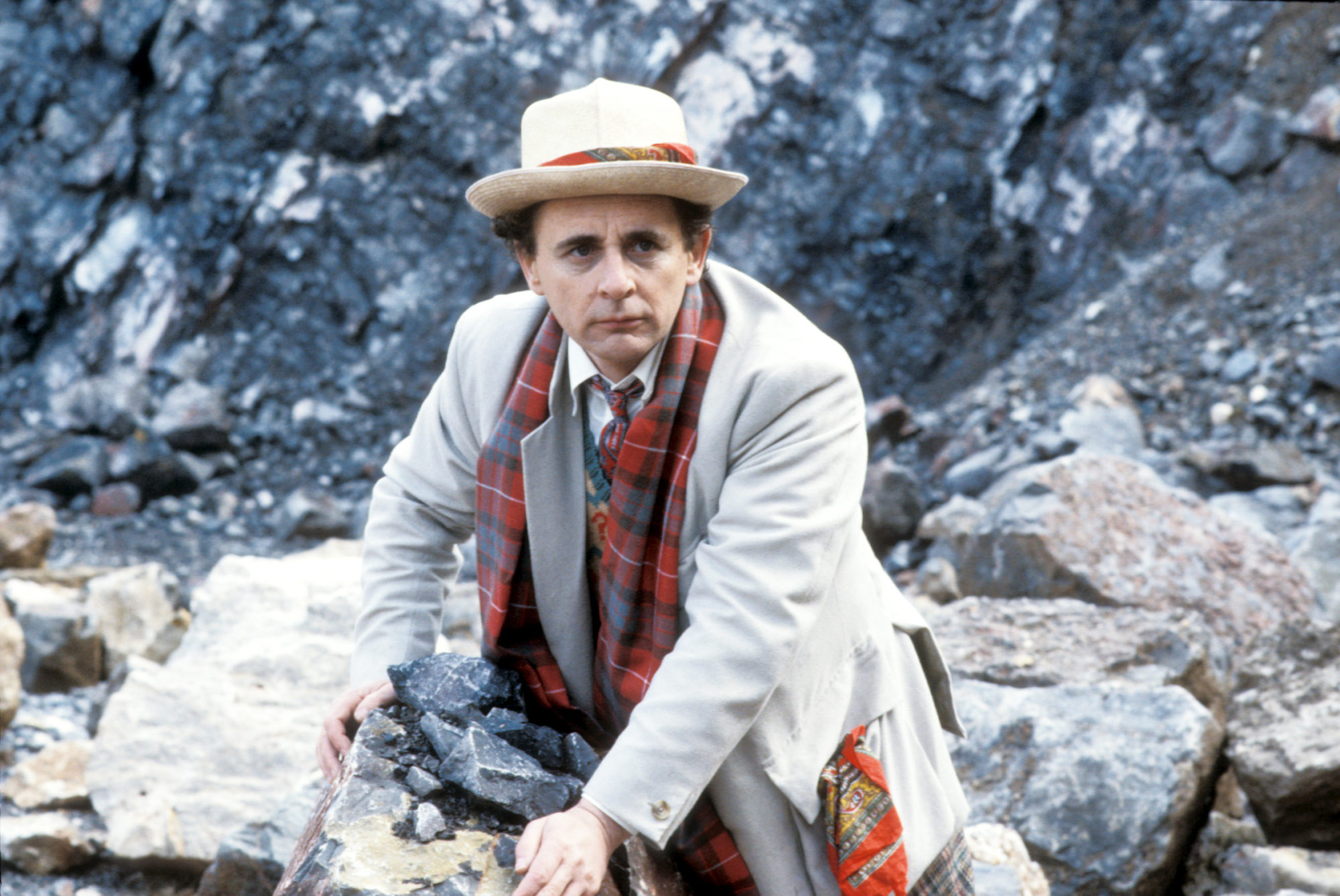
‘Time and the Rani’ came at a time of great change for Doctor Who. Having survived cancellation in 1985, there was considerable pressure on the production team to change the tone and overall direction of the programme. One of these changes involved the lead actor, Colin Baker, who was fired shortly before the new series entered production. Thus, Season 24 would see a brand new Time Lord at the helm.
But when ‘Time and the Rani’ was originally being written by Pip and Jane Baker, it was believed that Colin Baker would still be the incumbent Doctor – at least for this story. The writers had been told that he would be returning for just the one serial, and regenerate in its closing moments. As such, the original version of ‘Time and the Rani’ was penned as a Sixth Doctor adventure, with the eponymous Time Lord dying in a missile strike in the Rani’s laboratory.
Indeed, this tallies up with what the BBC originally suggested to Colin Baker, asking if he’d be willing to make a brief return to shoot a regeneration. Baker declined, but did make a counter offer – he said he would be happy to return for a full season, and regenerate at the end. The BBC never responded to this suggestion, and in the event the transition scene was filmed without him.
But even then, its inclusion in ‘Time and the Rani’ was touch-and-go. For a while, the producer John Nathan-Turner had been reticent to fake a regeneration, and had considered opening the story with the Doctor already wearing his new body. In the end, of course, he felt it was better to maintain the Doctor Who tradition and show the character’s transition, although he did veto a suggestion by the story’s director to include some archive footage of the Sixth Doctor.
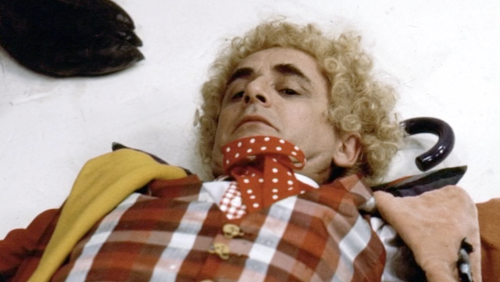
Elsewhere, there were some plot disagreements between the story’s writers and the incoming script editor Andrew Cartmel. The two parties had different opinions on what would work dramatically, with Pip and Jane Baker keen to include the Judgement of Solomon story from the Bible. It’s a tale in which the Israelite king tries to settle a quarrel between two mothers, both of whom are claiming to the mother of a baby (1 Kings, chapter 3 if you’re interested.) The Bakers felt that this was a famous historical moment that many people would recognise. Cartmel, on the other hand, thought that its meaning would be lost on ‘Time and the Rani’s viewers.
In the end, the matter was settled by John Nathan-Turner, who wasn’t familiar with the story either. Apparently, he told the Bakers that as both he and Cartmel didn’t know the tale, the chances were that Doctor Who‘s viewers wouldn’t either. So ultimately, the character of King Solomon was replaced with the physicist Albert Einstein, who would feature in a scene where he was writing a letter to the president of the United States about the atom bomb. (In the end, both Solomon and Einstein ended up on the cutting room floor due to the regeneration scene.)
“[Pip and Jane Baker] were very fixed in their ideas, and as old pros, they didn’t want to listen to some new kid on the block,” explains Cartmel, in the official DVD release of ‘Time and the Rani.’ “Which I could totally understand, but at the same time, I knew what I wanted to do and I knew that there areas in that script which needed a lot of improvement… I think we ended up with a script that Pip and Jane were unhappy about any change that had been made.”
“I think [Cartmel] was uncertain of himself,” says Pip Baker. “He was feeling his way, and he was presented with a script that was more or less finished.”
That being said, the Bakers were still pushing to reduce some of ‘Time and the Rani’s comical elements and make it a more serious production. For example, they weren’t overly keen on the Seventh Doctor’s spoon-playing, as they couldn’t understand where a Gallifreyan would learn such a skill.
“The spoons crept in on the set,” Pip Baker explains. “If we’d known about that, we might have had a little more to say about it.”
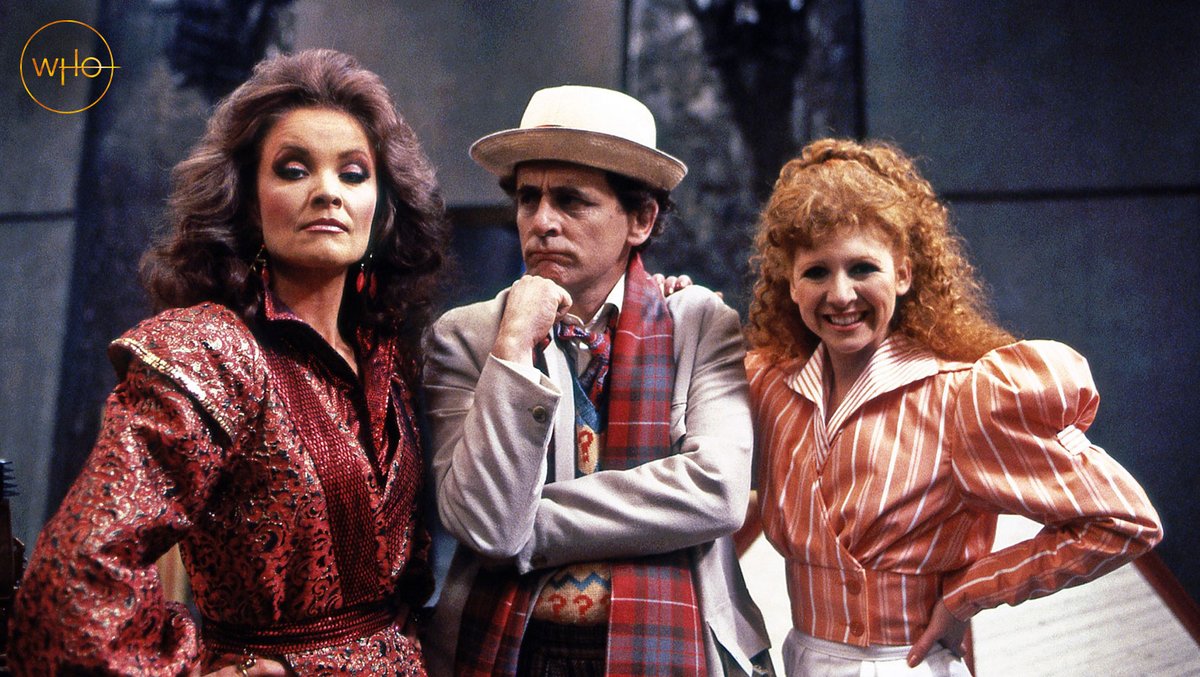
Moreover, the Bakers weren’t massive fans of the Doctor’s new habit of misquoting famous proverbs, as part of his post-regenerative confusion. This aspect of ‘Time and the Rani’ was, apparently, included at the request of the producer, who had been instructed by his BBC bosses to make the programme more humorous.
“It was John’s idea, this getting proverbs wrong,” says Jane Baker. “He said he would like Sylv to get the proverbs wrong in order to make him completely different from Colin.
“If you’re asking me if we would prefer to write as we did in ‘Mark of the Rani,’ I’d have to say yes, that is more what we conceived to be a Doctor Who story, shall we say. I mean, we’ve written comedy. But when we write comedy, we write comedy. We don’t really write a more serious story and add a bit of comedy to it. But [John Nathan-Turner] felt that it would make Sylv different and that was what he had to do, of course.”
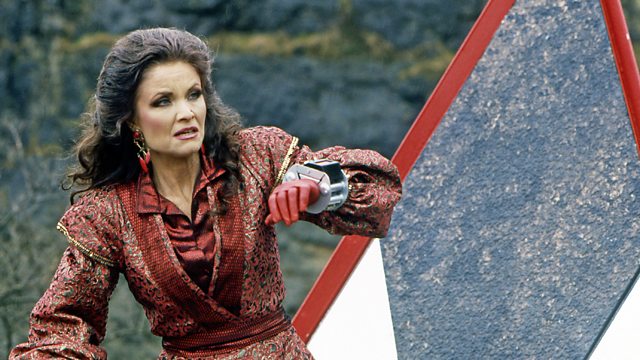
The fate of the Rani was also different in the transmitted version. In episode four, the character is taken prisoner on board her TARDIS by a race of creatures known as the Tetraps. In the original script, the Rani was meant to be hanging upside down like a bat (in-keeping with the Tetraps’ bat-like nature.) But during rehearsals, the actor Kate O’Mara was hanging upside down for so long that she burst a blood vessel in her eye. As a result, it was decided that it would be safer to have her dangling by her arms instead.
But would ‘Time and the Rani’ have been better received if a different version had been transmitted? It’s hard to say.
“It was a case of nobody being entirely happy with that one,” says Cartmel. “I thought it was a shame because it was the first shot for the new Doctor.”
However, the producer John Nathan-Turner felt more favourably about ‘Time and the Rani.’ “I liked that transition story, you know, where the Doctor is falling apart and getting slightly loopy,” he said in an archive interview. “I liked it. I think Andrew Morgan [the director] did a nice job on that one.”
But how do you feel about ‘Time and the Rani’? Would you have preferred it to have opened with the Judgement of Solomon, rather than the Sixth Doctor’s regeneration? And was the Seventh Doctor‘s spoon-playing a good idea? Let me know in the comments below.
See the newly-remastered version of ‘Time and the Rani’ in the Doctor Who Season 24 Blu-ray box set, which will be released in 2021.
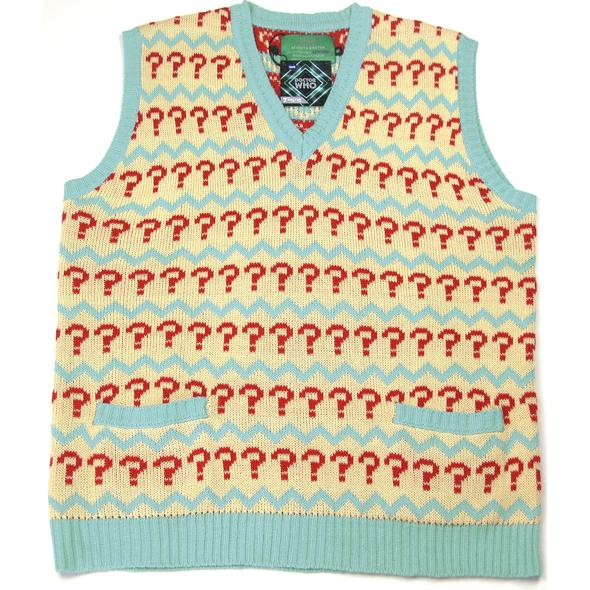
Seventh Doctor jumper – order now from the Lovarzi shop!
Shop on Amazon
Latest posts…
- Which version of the Doctor Who TV movie should you buy?
- Do Doctor Who fans object to ‘new things’?
- Will Doctor Who The Collection include the earliest seasons?
- The greatest Doctor Who sequels
- Doctor Who Season 21: Was the Myrka really that bad?

Definite NO to Judgement of Soloman. Sidney Newman was very emphatic about Doctor Who not involving religion, and would have vetoed it straight away. I thought the spoon playing was just pandering to McCoy’s skills and felt contrived, but it did serve a purpose. if it were me, I would have had the Doctor perform conjuring tricks instead. The introduction of the new Doctor was not too different from the introduction of the Second Doctor in Power of the Daleks. I think it very appropriate that a newly regenerated Doctor would act somewhat childish, as technically that is precisely what he is. I would say this is a regeneration episode done right, and i enjoyed Time and the Rani.
Although the story comes from the Bible, I don’t know how different it would be to, say, the Mythmakers, which was based on a Greek religious text. Or Meglos, a bit of a cliched attempt to make a comment about science and religion. I’m just surprised that they thought that so few people would have known the story, but then I’m both a Christian and a bit of a culture snob. I actually don’t think Time and the Rani is that bad, except perhaps for the plan itself, it’s always reminded me of a bit of a B-grade Troughton story.
I’m not overly crazy about the Solomon idea, but Time and the Rani is truly dreadful. Whether it is down to the Bakers’ script or meddling by the script editor is hard to say. I’m a big fan of Mark of the Rani and Terror of the Vervoids is way better than Time and the Rani, so the Bakers can certainly write a good script. Overall, the entirety of Season 24 is really bad Doctor Who, so I think it mostly comes down to JNT and Cartmel. They’d improve the series over the next few years, but it was too slow and hit or miss for the show to survive.
I still like Time and the Rani as it is. Many fans don’t like it but I always enjoyed it. Love the spoons which was use in latter stories. I still think the Tetraps are a cool monster for Doctor Who that don’t get much praise.
Ive rewatched some of the old Sylvester Mcoy episodes, and really enjoy stories like Curse of Fenric and even Ghost Light as they are also Companion centred. They introduce ideas that the new series picks up. Plus ACE was brilliant.
I’m very much a fan of Time and The Rani. It’s a very slick production and the script is a lot of fun. To me it’s very Doctor Who-ey! Underrated. Sylvester starts of nice enough and Kate O’Mara a joy as always.
It is certainly not the nadir of Doctor Who and I genuinely think the 3 (Cartmel arranged) serials that followed (Towers, Delta and Dragonfire) are horribly realised and poor.
Time and The Rani deserving of much more love.
It was a god-awful story.
Sylvester McCoy’s buffoonery in his debut made me cringe with embarrassment- but it was Bonnie Langford’s shrieking wails that was the butt of a thousand jokes in my sixth form common room.
Luckily by the end of season 24, Slyv had settled into the role and would become one of the greatest Doctors and Bonnie left to be replaced by the brilliant Ace portrayed by Sophie Alfred.
Though to be fair, I think Bonnie totally redeemed herself with the Big Finish Audios and her recent appearance in New Who.